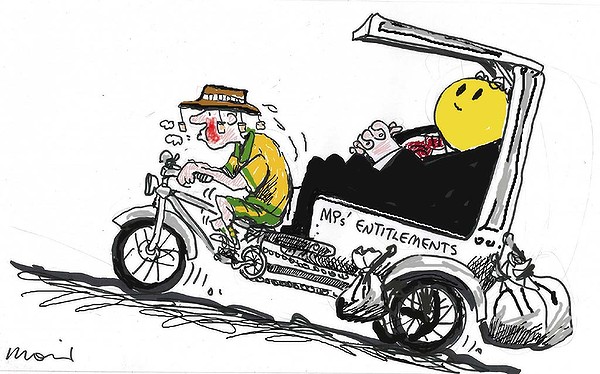|
April 20, 2012
Neo-liberalism isn't simply about the privileged or the elite lining their pockets, as it is a particular mode of governing the capitalist economy.

Neo-liberalism is generally associated with free market policies: deregulation, privatisation, competition, small state etc. David Harvey’s contention is that we are witnessing, through this process of neoliberalisation, the deepening penetration of capitalism into political and social institutions as well as cultural consciousness itself. It is the elevation of capitalism, as a mode of production, into an ethic, a set of political imperatives, and a cultural logic. It is also a project: a project to strengthen, restore, or, in some cases, constitute anew the power of economic elites.
Neoliberalism is therefore not a new turn in the history of capitalism. It is more simply its intensification, and its resurgence after decades of resistance from the Keynesian welfare state and from experiments with social democratic and welfare state politics.
Harvey has argued that the theory and practice of neo-liberalism are different. The theory takes the view that:
individual liberty and freedom are the high point of civilization and then goes on to argue that individual liberty and freedom can best be protected and achieved by an institutional structure, made up of strong private property rights, free markets, and free trade: a world in which individual initiative can flourish. The implication of that is that the state should not be involved in the economy too much, but it should use its power to preserve private property rights and the institutions of the market and promote those on the global stage if necessary.
Harvey says in his A Brief History of Neoliberalism, In practice, the fundamental features of this mode of governance are the disciplining and disempowerment of the working class and restoring the power and profits of the capitalist ruling class. It is about transforming the economy to regenerate capital accumulation and to redistribute wealth towards the upper classes.
Harvey argues that from the very beginning in the 1970s (Pinochet in Chile, Thatcher in Britain and Reagan in the United States) neo-liberalism was a project to achieve the restoration of class power. Neo-liberalism has been able to reverse the various political and economic gains made under welfare state policies and institutions. It is Harvey's fear that neoliberal regimes will slowly erode institutions of political democracy since the freedom of the people would be restricted in favour of the freedoms of the few.
|
